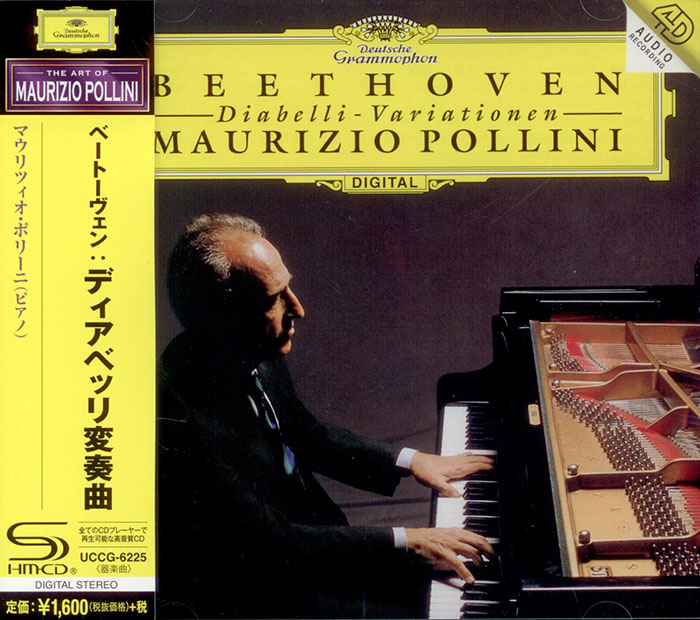Logowanie
Dziś nikt już tak genialnie nie jazzuje!
Bobby Hutcherson, Joe Sample
San Francisco
SHM-CD/SACD - NOWY FORMAT - DŻWIĘK TAK CZYSTY, JAK Z CZASU WIELKIEGO WYBUCHU!
Wayne Shorter, Freddie Hubbard, Herbie Hancock, Ron Carter, Elvin Jones
Speak no evil
UHQCD - dotknij Oryginału - MQA (Master Quality Authenticated)
Chesky! Niezmiennie perfekcyjny
Winylowy niezbędnik
ClearAudio
Double Matrix Professional - Sonic
najbardziej inteligentna i skuteczna pralka do płyt winylowych wszelkiego typu - całkowicie automatyczna
BEETHOVEN, Maurizio Pollini
Diabelli Variations
- Maurizio Pollini - piano
- BEETHOVEN
AllMusic Review by James Leonard [-]
Pollini's recording of Beethoven's final masterpiece for the piano excels even in comparison with the familiar greats. Schnabel? His musical depth can't be denied, but his pianistic technique is lacking. Brendel? His recordings -- one early, one late -- are technically superb, but the earlier emphasizes the virtuoso element at the expense of the humanity and the latter wants humor and pathos. Richter? His three recordings are undeniably great, but all are live and all have grievous flaws. And Arrau? He was just too old to rise to the work's technical challenges.
This isn't to say that Pollini's is the best by default. True, his always astounding technique is at its peak. This means, essentially, that he makes no mistakes: no slipped notes, no flawed pedaling. Most of all, he plays the work the way Beethoven wrote it (something apparently beyond most pianists) -- he finds musical depth through intellectually rigorous argument.
But what impresseses most about Pollini's Diabelli Variations is his humanity. Some critics have said that Pollini's tremendous technique and prodigious intelligence have inhibited his emotional intensity, citing his Chopin as an example. But listen to his brusque treatment of Diabelli's dumb waltz theme. Listen to his humor in the variation which combines Diabelli's theme with Leporello's opening aria from Don Giovanni. Listen to the passion of the final minor key variation. Listen to the exhilarating final fugue. And listen especially to the wistful return of the Diabelli Waltz. Then try to argue that Pollini lacks emotional intensity and that his is not the best set of Diabelli Variations.
Maurizio Pollini - w naszej ofercie

Płyty SHM-CD do odtworzenia we wszystkich typach czytników CD oraz DVD. Gwarantują niespotykaną wcześniej analogową jakość brzmienia, odwzorowują wszystkie walory taśmy-matki. Zdaniem specjalistów - ten nośnik i ta technologia najlepiej - bo natywnie, przenosi na krążek CD wszystkie walory nagrania analogowego.


































